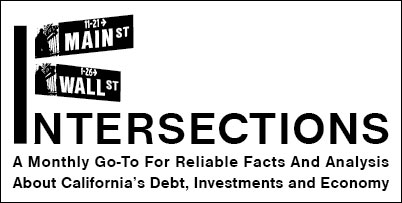
Vol. 1, No. 1, Published May 6, 2015
Guest Column
The Secret Password for California? Open Data
By Jason Barrett, Kevin Klowden and Ross DeVol

California is known for technological innovation. Netflix, Google and Apple (among hundreds of other pioneering companies) were founded here, the state has six of the top 25 technology clusters in the country and is home to the world leader — Silicon Valley. So why, then, does it find itself looking up at many other states when it comes to creating a cohesive open-data policy?
As explained in new Milken Institute report, “Open Data in California: Why the State Needs a Unified Strategy for Public Information,” the State of California's delay in formalizing a statewide open-data strategy puts it at risk of falling behind other states that are realizing the economic benefits of having one. At present, each individual State agency follows its own standards for publishing data and the lack of a consistent and transparent policy creates confusion. To maximize ease of use for both users and agencies, the State must develop a uniform strategy that dictates how and when machine-readable data is published by its agencies.
Open data is, in short, knowledge. Government agencies collect and archive a staggering amount of data every day on everything from traffic patterns to budget allocations, and usually that data, once it serves its immediate purpose, is stored away in databases and digital archives to collect virtual dust.
But imagine if instead that data was easily accessible and comprehensible. A Silicon Valley entrepreneur, for example, could use those traffic patterns and budget figures to develop software for adjusting traffic–light patterns that reduce the average commute by 10 minutes and save the State millions in road maintenance. Not only are such ideas possible with open data, they are inevitable. And the potential economic and government effectiveness benefits are astounding.
California businesses are already taking advantage of online open-data portals created by cities and counties that have established their own policies. The Open Data 500 cites California as home to 132 of the Top 500 companies that use open government data to generate business and develop products. Clearly, cities, counties and businesses around the state have recognized the economic impact of open data — it's time for the State of California to follow suit.
Further, entrepreneurs aren't the only ones who stand to benefit from an open-data policy in California. Through open-data initiatives, State officials could improve their relationship with the general public by offering a window into budgetary issues, State operations and other areas that will improve trust in government.
A few forward-thinking legislators are pushing California to open-data modernization. Two bills would mandate the creation of a state level Chief Data Officer. Another requires all California cities to inventory their available data sets. These bills are important first steps, but there are additional components, such as formatting standards and dataset prioritization, that are needed to create an effective policy.
With the combination of a massive push to publish useful State datasets and the power of California's innovative workforce, the possibilities of open data are virtually limitless.
The opinions in this article are presented in the spirit of spurring discussion and reflect those of the authors and not necessarily the Treasurer, his office or the State of California.